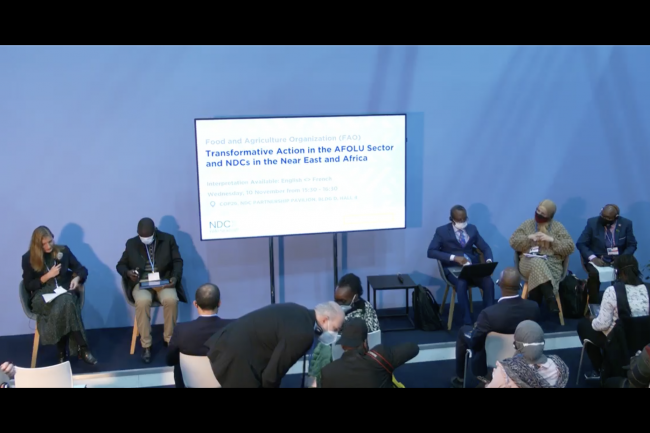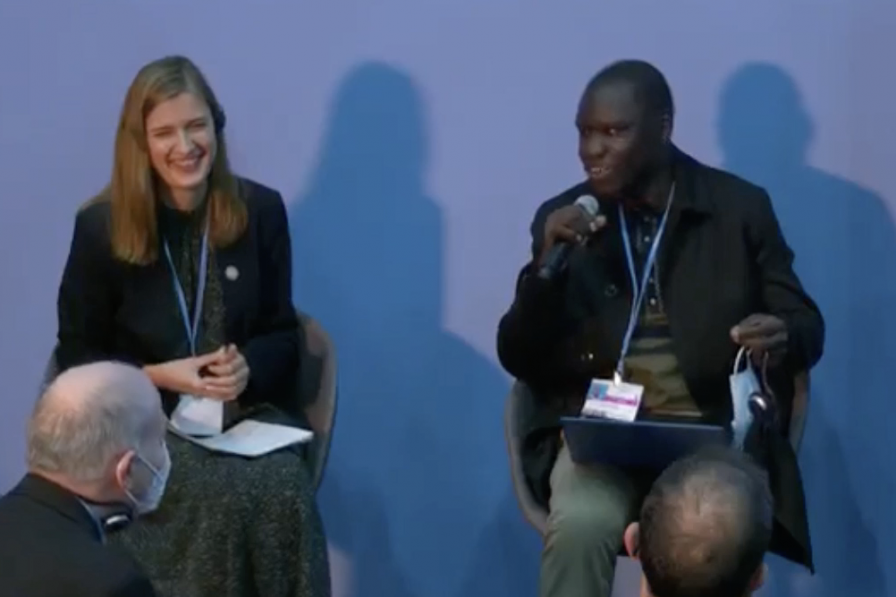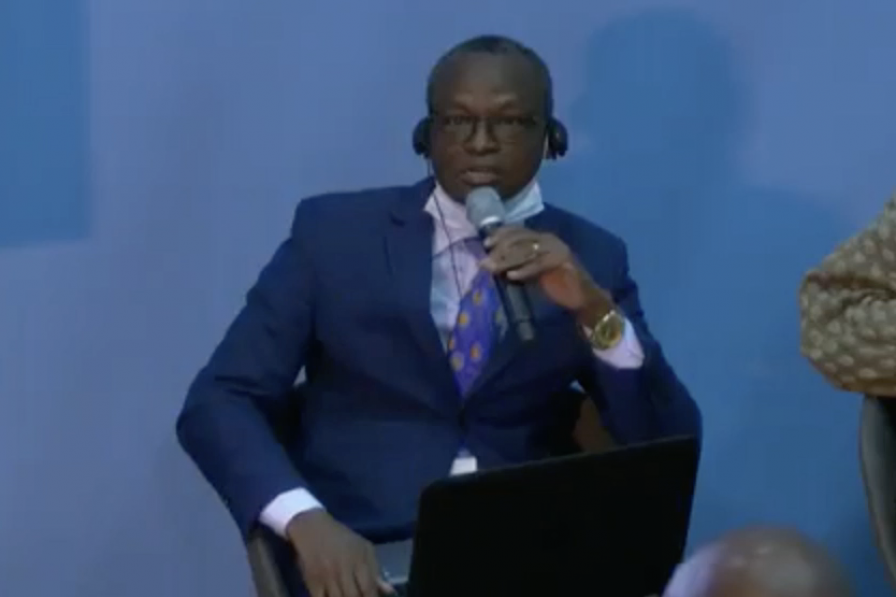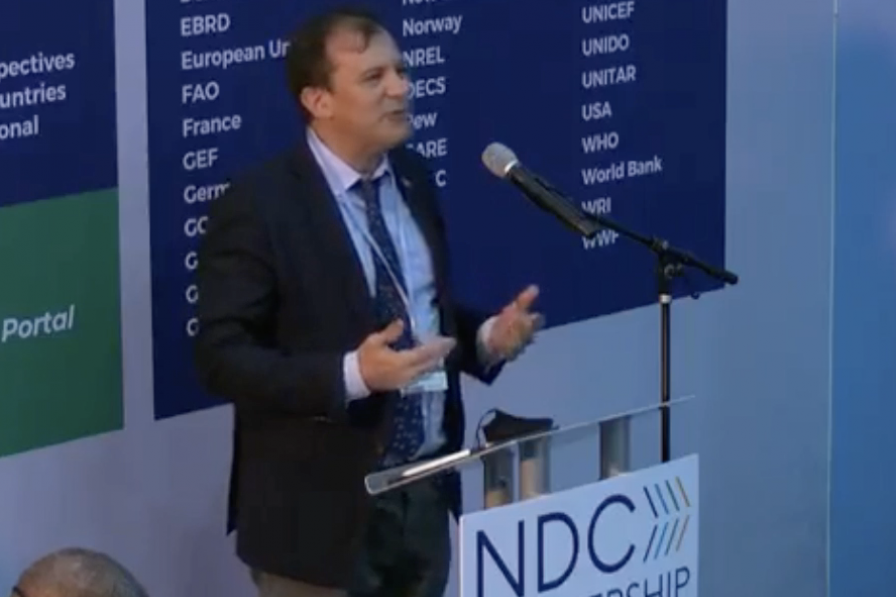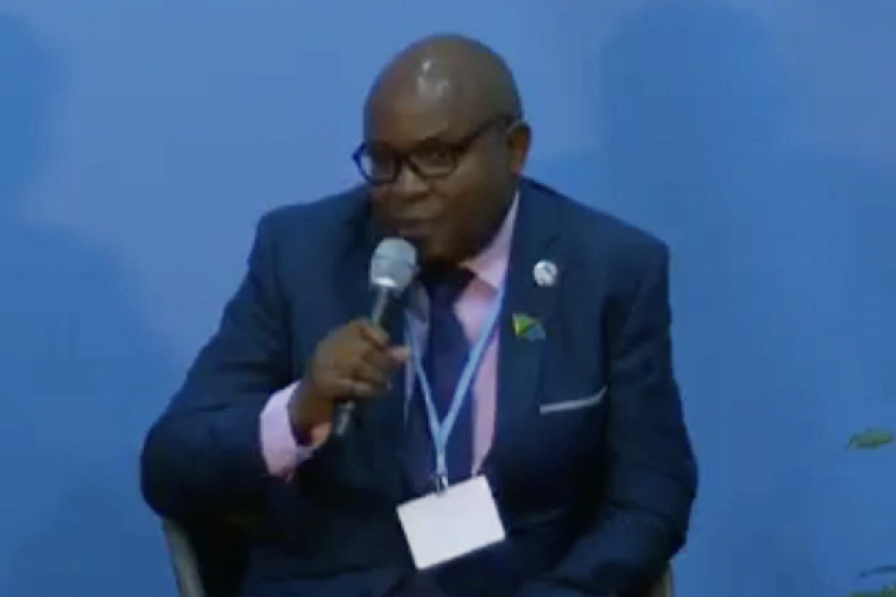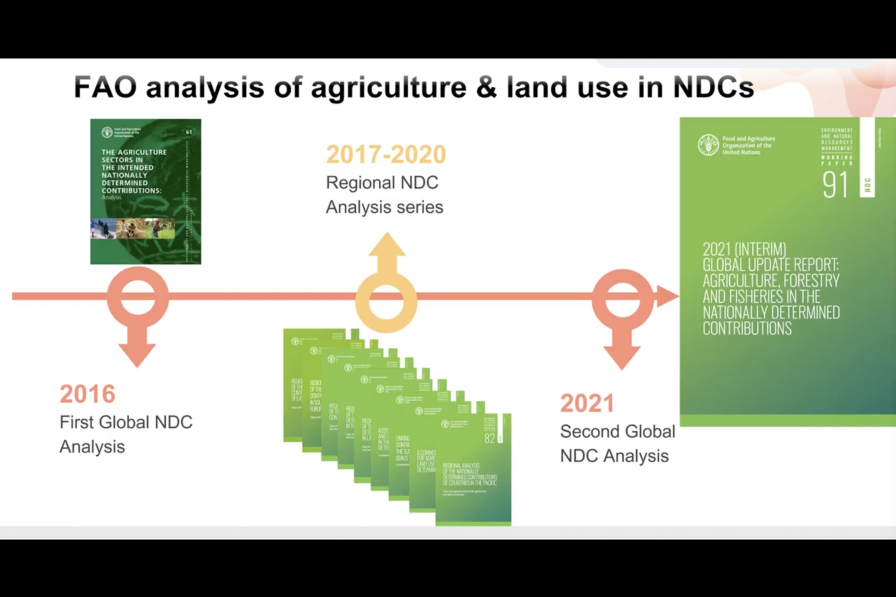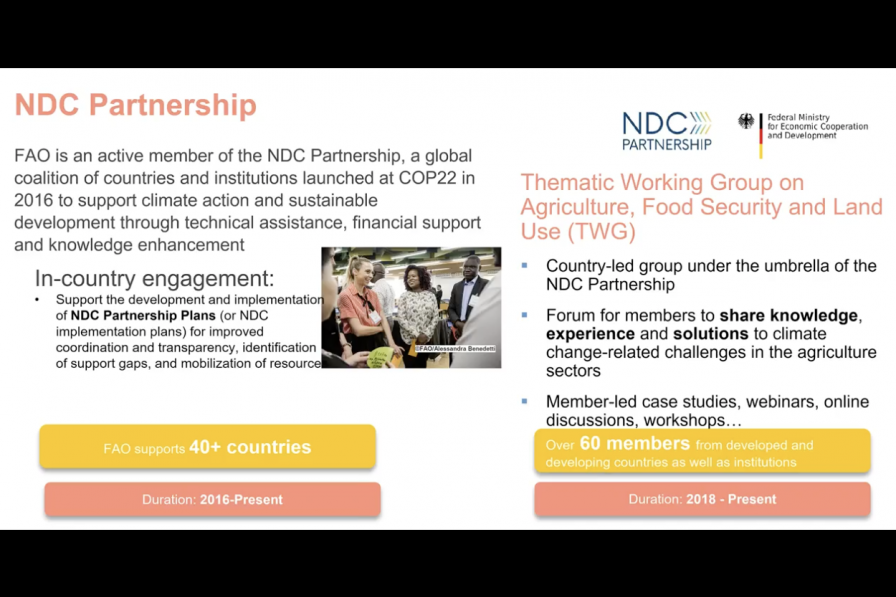Transformative Action in the AFOLU Sector and NDCs in the Near East and Africa
Urgent action is necessary to adapt to and slow down the irreversible changes in sectors connected to agriculture that are happening because of climate change. This calls for accelerating implementation of countries’ nationally determined contributions (NDCs), particularly in the agriculture, forestry, and other land use (AFOLU) sectors.
This side event highlighted the findings of the Food and Agriculture Organization of the UN's (FAO) regional analyses of NDCs for countries in the Near East and North Africa (NENA) and Sub-Saharan Africa (SSA) and presented updates on countries’ revised NDCs for 2021 and other actions undertaken to respond to challenges faced in the AFOLU sectors.
The event was organized by FAO to:
- provide a platform for sharing and advocacy on enhancing NDC coordination processes among sectors;
- explain how the UNFCCC’s Koronivia Joint Work on Agriculture supports better integration and stronger agricultural priorities in NDCs; and
- present innovative elements in countries’ new or updated NDCs for accelerating action in the agriculture, land use, and water sectors.
Opening Remarks
Liva Kaugure, FAO, moderated this event, noting its purpose to provide information about enhancing NDCs from developing countries and Koronivia’s role in providing support for better integration of agriculture within them.
Martial Bernoux, FAO, said FAO analyzes all sectors in NDCs that impact on food security, including crops, livestock, forestry, fisheries, biodiversity, and natural land and water resources. He outlined progress in NDCs, saying current analysis compares countries’ 2016 NDCs with their 2021 five-year “progress report” NDCs. He then gave an overview on the NENA and SSA regions, noting specific challenges in each, including, inter alia, drought, land degradation, and water stress and actions to increase resilience.
Presentations
Panelists then spoke about using lessons learned for enhancing NDCs in the future.
Ibtisam Abuhaija, Ministry of Agriculture, Palestine, said the best technology is what is cheapest, most accessible, and easiest for small farmers to adopt. She reported the lesson learned that all sectors related to agriculture or affected by agriculture must be involved in developing and improving NDCs, including those related to water and irrigation, soil, land management and protection, food security, energy, and waste.
Ibila Djibril, Koronivia negotiator and former Adaptation Fund Board Chair, Bénin, said Bénin's NDC required national and subnational coordination among all levels, including a national coordinator, government ministers, nonstate actors, and local communities, to achieve agricultural transformation. He highlighted regular meetings and follow-up during development and then monitoring of his country’s NDC.
Freddy Manyika, Vice President’s Office, Division of Environment, Tanzania, said lessons learned included that: political will is needed for mobilizing private sector and civil society resources; a working group proved useful for working with farmers in the fields and in policy to provide advice and transparency; NDC preparation should reflect the field level because priorities there will guide implementation for the next five-year period; farmers must be able to give feedback on how targets are being met; resources from different partners are needed; and forestry has huge potential for reducing emissions.
Lamine Diatta, Ministry of Environment and Sustainable Development, Senegal, said that because agriculture is very complex Senegal updated AFOLU in its NDC. He highlighted that climate change policies are negotiated, established, and reviewed through Senegal’s National Committee on Climate Change, which includes relevant ministries, academia, and farmers’ organizations. He said Senegal’s first NDC focused on transferring policy to on-the-ground actions, and now the focus will be on training for implementation and monitoring.
Panelists then reported on Koronivia’s contribution to strengthening agriculture’s integration into NDCs. Abuhaija said new fields, including livestock and the food value chain, have been added to the Palestinian NDC and expertise has been developed. She said links between the technical and political levels are very important, saying all action plans should be “owned” by all ministries. She cited the objective of making the agriculture ministry more climate-friendly and said donors are being approached to assist in this regard.
Djibril said the NDC process is an opportunity to continue Bénin’s National Adaptation Plan process and to implement the Koronivia guidelines. He said Koronivia is about evaluating adaptation and resilience and improving soil organic carbon stocks and fertility, which requires integrating agriculture, livestock, fisheries, and aquaculture systems.
Manyika said Tanzania held an agriculture workshop for sharing information among policymakers, researchers, donors, and practitioners. He reported that it opened the door to private sector engagement and will be integrated into the national process and taken forward.
Diatta said Koronivia is the first window within the UNFCCC to consider agriculture as a systemic approach to deliver climate action on the ground through all its workstreams, bodies, and financial entities. He noted it will encourage donors and others to consider agriculture in their funding mechanisms and countries to undertake more work in their agriculture and forestry sectors. He stressed integrating agriculture with, inter alia, water, mitigation and adaptation, and food security.
Robert Bradley, World Resources Institute (WRI), said WRI’s NDC Partnership now has 200 members, comprising 120 countries and 80 international organizations. He expressed satisfaction that Partnership members can learn from their collective experiences and work together to mobilize finance, implement and enhance NDCs, raise ambition, and, now, build back better from the COVID-19 pandemic. He added that agriculture is the most fundamental sector in the human economy, noting “without agriculture we cannot recover, mitigate climate change, or survive climate impacts.”
Leah Wanambwa, African Union, closed the meeting, expressing thanks for the support of the NDC Partnership, of which the African Union is a member.
CONTACTS:
Maylina St. Louis | maylina.stlouis@fao.org
Krystal Crumpler | krystal.crumpler@fao.org
MORE INFORMATION:
To receive free coverage of global environmental events delivered to your inbox, subscribe to the ENB Update newsletter.

